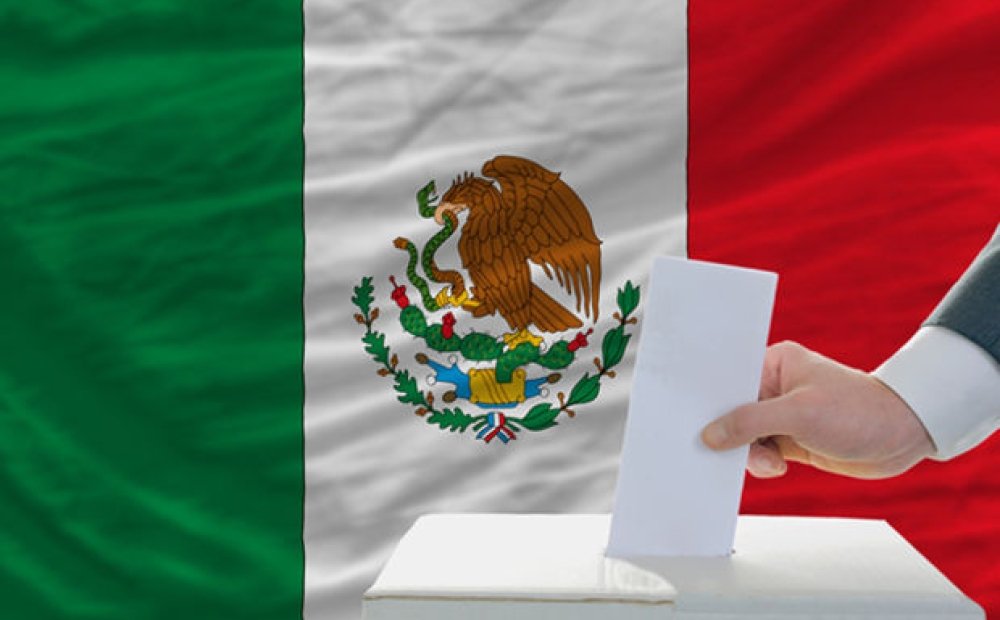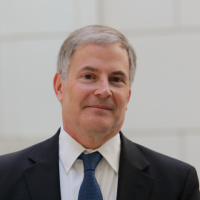Ground Truth Briefing | Mexico's Mid-Term Elections

The Mexico Institute was pleased to host a Ground Truth Briefing with analysis of the election results and implications for the López Obrador government, featuring insights from experts on the ground, including an official election observer. The audio recording of the Ground Truth Briefing is available above. On June 6, Mexicans participated in the largest election in the country's history where they chose candidates for over 21,000 offices. The election marked the halfway point in President Andrés Manuel López Obrador's term and was widely viewed as a referendum on his first three years in office. The outcome of the election will determine the extent to which López Obrador can implement his Fourth Transformation of Mexico. With a weak and divided opposition, López Obrador's ruling party, Morena, is expected to maintain control of the Congress.
Selected Quotes
Duncan Wood
“One of the biggest takeaways of this election is that democracy does work in Mexico. I know that a lot of people have had doubts about the future of democracy, but it’s alive and well… The culture of democracy is alive and kicking.”
“If you attack the legitimacy of the election, you are attacking the legitimacy of more than a million Mexicans who worked on that election. And that is a pretty tough battle to pick.”
"We are still in the very preliminary stages of the relationship with the Biden Administration and the current Mexican Government. The approach that we’ve seen so far is that the Biden team wants to build a positive and constructive relationship with AMLO.”
Alexandra Zapata Hojel
“The state of Guerrero originally had a candidate from Morena who has been accused by multiple women of rape… and he decided and Morena allowed him to impose his daughter as the new candidate for the Morena party, and unfortunately she won in Guerrero, and that’s a very strong message against the women’s movement across Mexico.”
“The most powerful message that comes out of this election is the shift in checks and balances and the fact that Morena will no longer—unless it reaches agreements with other parties—it won’t be able to change the constitution by itself and with its immediate allies. I think that’s very important in terms of democracy.”
“The big victory in this election is the credibility and the strength with which the INE exits this election, I think citizens will be trusting INE, citizens will be acknowledging the importance of INE, and I think that’s a very important step in the right direction moving toward 2024.”
“The takeaway message is that it will not be enough for the opposition party to simply run with the message of ‘we are the opposition to Morena’. They literally have nothing else to offer to the Mexican public besides that. As we move towards 2024, the opposition parties will have to come up with ideas and an election platform that will convince and inspire Mexicans much more than they have done in this election”
Carlos Heredia
“I think the main message is that voters decided to establish some sort of checks and balances that did not exist for the first three years of the term of President Andrés Manuel López Obrador. The main message is that Mexican democracy is not one color only, but it is plural and diverse.”
“It is really an enormous achievement on the part of the President and his party and his coalition to have ratified their absolute majority and to have won the election in spite of the Mexican economy going down as it has over the past three years.”
“The voters [of Mexico] do not want a supreme court that follows the dictum of the President even though he has appointed three of the justices early on in his term. The outcome of the election is also good news for the supreme court keeping its role in the checks and balances in the political system as a whole.”
“I think that the big question up in the air is whether Vice President Kamala Harris will be able to balance the two main points in the visit’s agenda. The first one being persuading Mexico and Guatemala to continue to play the role of containment of northward migration flows. The second one being to play a role in local and regional development of Guatemala, Honduras, and El Salvador.”
Pamela Starr
“[The election] reinforces the independence of the supreme court in the sense that it will be hard for López Obrador to say that he has won an overwhelming election mandate that would allow him to win over the votes that he needs in the senate in order to get the two thirds [votes] that are required to approve a new supreme court justice.”
“The result of the election is not going to lead to a López Obrador who is less devoted to his fourth transformation of Mexico. He is deeply devoted to that. It may change the tactics he uses.”
“We’re still going to see this aggressive tone toward actors that try to obstruct [López Obrador’s] efforts to move [his policy] forward. And that tone is not going to be a positive tone for U.S.-Mexico relations.”
Speakers



Associate Professor, Centro de Investigación y Docencia Económicas (CIDE)

Professor of the Practice of Political Science and International Relations, USC Dornsife College of Letters, Arts, and Sciences; Fellow, Center on Public Diplomacy and Professor, University of Southern California; Adjunct Fellow for Mexico and U.S.-Mexico Affairs, Pacific Council on International Policy
Moderator

Hosted By

Mexico Institute
The Mexico Institute seeks to improve understanding, communication, and cooperation between Mexico and the United States by promoting original research, encouraging public discussion, and proposing policy options for enhancing the bilateral relationship. A binational Advisory Board, chaired by Luis Téllez and Earl Anthony Wayne, oversees the work of the Mexico Institute. Read more
